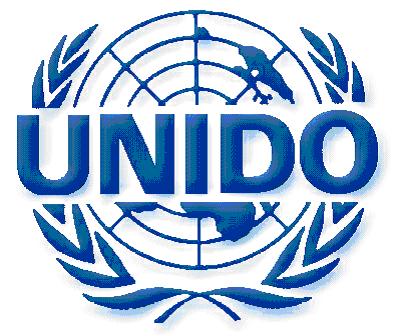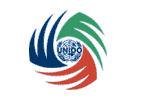 |
||||||||||
|
|
||||||||||
 |
UNITED KINGDOM GUARANTEE COMPANYProactive Risk Management in Business Development
United Nation viewpoint (extract from article of Ms. Dan LIANG, Director, Industrial Promotion and Technology Branch, UNIDO, United Nation and others UN documents)
The global economy has become knowledge- and technology-driven, but while innovation and rapid technological changes are the reasons for unprecedented prosperity and growth in industrialized countries, many developing countries and countries with economies in transition are risking marginalization by being trapped in a technology divide and an investment gap. Foreign direct investment and acquisition of technology are indispensable elements for the economic transformation these countries require to achieve sustainable economic growth and to eradicate poverty… Barriers include the lack of effective investment and technology promotion policies, inappropriate legal and regulatory frameworks, inadequate capabilities of investment promotion and technology support institutions, and the lack of access to potential investors and sources of new technology.
Services provided and expected outputs: Building institutional capabilities in investment and technology promotion Establish or strengthen national investment and technology promotion institutions and upgrade their capacities in the identification, formulation, appraisal and promotion of investment and technology projects and technology transfer negotiations; Provide opportunities for staff of national investment- and technology-related institutions to upgrade their skills through on-the-job advanced training in the ITPO under the Delegates Programme; Establish or strengthen international and national technology centres to enhance North-South and South-South technology flows in order to achieve innovation results; to bring advanced and new appropriate technologies to the marketplace; to facilitate technology sourcing, transfer and acquisition; and to assist in managing technological change; Assist public- and private-sector institutions to establish or strengthen national subcontracting partnership; Undertake training programmes in regional and national financial institutions in developing countries and economies in transition in contemporary investment promotion techniques, UNIDO's on-line promotional tools and project financial appraisal methodologies;
Promotion of business alliances Support national investment- and technology-related institutions in their efforts to develop business alliances with foreign partners by providing access to potential investors and technology suppliers; Facilitate completion of investment and technology projects by disseminating screened and appraised project proposals among financial institutions interested in seeking direct investment opportunities in developing countries and economies in transition. End of extract from Article. Developing countries and economies in transition face numerous challenges in their industrial development and modernization. Industry needs a supportive climate for growth. Managers must make industries more competitive to sell more of what they make - especially abroad. The industrial base must be expanded to generate increasingly more productive jobs - and all this in an era of global volatility and constant change. To meet such challenges, governments, institutions and industries wrestle with typical, common problems:
The United Nations has committed itself to help developing countries and those in transition to accelerate their development, while meeting social and environmental challenges. A family of UN agencies and institutions is working together to achieve this. One of them is a specialist in industrial affairs. That agency is UNIDO. UNIDO, the United Nations Industrial Development Organization, has been working with governments, business associations and individual companies to solve industrial problems - and equip them to help themselves - for more than 30 years. With the march of globalization, UNIDO has never been needed more. Why UNIDO? Because there are some challenges in the developing world that can only be met by an international organization. The international private sector wants evidence of good governance, security, sound institutions and competent, fair regulation before it will invest. Quality standards in international markets demand increasingly more and higher technology. A country's capacity for such continuous change depends on a stable, perpetually improving technical infrastructure for industry, a more strongly rooted industrial culture and skill-base and a national capability to support and encourage efficient industrial growth. Market forces alone cannot spur such development. UNIDO has the necessary experience to help in all these fields. Because of this long experience, UNIDO understands the needs of governments, industrialists and entrepreneurs everywhere. In many fields, it has rightly earned a reputation as a neutral, honest broker. UNIDO is the world's most experienced industrial problem solver. Alone among the UN family of agencies and organizations, UNIDO focusses on industrial development and serves as a global forum on its social, economic and technological consequences. Its specialists understand why there are few easy answers to the many industrial problems of the developing world:
All of these problems - and many more - may have been tackled before. Some solutions can be replicated or adapted elsewhere. There is no need to re-invent the wheel when the know-how is already available. But where know-how is not readily available, we know where to find it. And new solutions are called for, we have the capacity to do so. UNIDO has more industrial know-how, and know- where, than any other international agency. UNIDO's mission is to help countries pursue sustainable industrial development. This is its specialist role in the UN system. The role is vital: industrial growth helps foster economic development; economic development improves tax revenues and makes it possible for governments.
Definitions of economic developmentNancy Blane, Blane Canada, Inc.: Defining economic development ... is not an easy task! So what do you say when someone asks you to explain it? Try adopting the philosophy of BASF Corporation: "We don't make a lot of the products you buy. We make a lot of the products you buy ... better!" Similarly in economic development, this is envisioned through attraction, retention, expansion and investment. Grand Valley State University, The Dorothy A. Johnson Center for Philanthropy & Nonprofit Leadership, Allendale, MI (USA): Any effort or undertaking which aids in the growth of the economy ...
We know that most politicians support "it", most communities are active in "it" to various degrees, a great number of citizens want "it", and nobody seems to be getting enough of "it"! But what in the world is "it"? When used in the traditional format, the most common theme would probably involve some sort of a lending program. So starting this series by offering up a definition that covers the bases becomes my first major chore. Common definitions out there include "job creation" ... Defining economic development turns out to be a major chore ... Economic development is fundamentally about enhancing the factors of productive capacity - land, labor, capital, and technology - of a national, state or local economy.
Economic Development is ... organized efforts to attract new business into an area or to encourage existing business to expand.
Indiana University, Bloomington, IN: The process of raising the level of prosperity and material living in a society through increasing the productivity and efficiency of its economy. In less industrialized regions, this process is believed to be achieved by an increase in industrial production and a relative decline in the importance of agricultural production.
Economic Development is ... (increasing the flow) of capital through the community and reducing its leakage ... Other definitions are only pretenders to the crown. So, what have you done for your community today? Economic Development and RiskRisk - real or assumed exposure to the possibility of adverse circumstances. Risk challenges the potential for success in local economic development and the profit in economic enterprises. Risk is unavoidable in enterprise and economic development. Enterprise development - It's a process of investing capital and time in creating, expanding, or improving (for excellence) the operations of a business or any other type of endeavor that has employees and contributes to the stability or growth of a community. Risk
of
loss
using
managed
futures/option
investments
can
be
substantial.
You
should
carefully consider whether they are suitable for
your
composite financial strategy. The high degree of
leverage uses can work
for you as well as against you. We believe that using managed futures and options only within a balanced life and well designed financial strategy expresses healthy management of risk. Without healthy management of risk the entire futures and options industry is pure speculation and should be probably be avoided at all costs. Risk management BasicsSelecting a location is as a process of eliminating all places, properties, and real estate sites that won't work and choosing the one that most nearly matches a set of selection criteria. Location work is a risk management process during which all five of the following common sense points should be applied. Locations that seek economic development run the risk of polarizing their citizens, even in cases where its a matter of sustaining the life of the community: Economic development is a risky business because it changes things; therefore, these simple rules for risk management apply:
Effective Risk Management For Business SectorRISK MANAGEMENTThe protection of resources, both human and material, against injuries, damage or loss, and maintaining financial stability and business continuity through cost effective methods of protecting assets and earnings. RISK MANAGEMENT PROCESS
SOURCES OF POTENTIAL LOSS
TYPES OF RISKS
FUNCTIONS OF RISK MANAGEMENT
RESPONSIBILITIES OF THE RISK MANAGER (RM)
RISK MANAGEMENT POLICY The Company is committed to best practice in risk management at each level of Management and different areas & divisions, through the identification, evaluation, and management of risks that threaten the business. Managing operational risks is an integral component of an overall management process; it provides an efficient process for the protection of lives, assets, revenue and the environment. The risk management process supports better decision-making for future growth by contributing a greater understanding of undesired or unexpected outcomes. ELEMENTS OF RISK MANAGEMENT FUNCTION
RISK MANAGEMENT STRATEGY
RISK MANAGEMENT POLICY
IMPLEMENTATION OF RM
HOW TO CONTROL RISKS
HOW TO MAKE RISK MANAGEMENT WORK?
EFFECTIVE RISK MANAGEMENT
OBJECTIVES OF OPERATIONAL RISK REVIEW (ORR)
RISK AREAS COVERED BY ORR
Copyright © 1990 United Nation (UNIDO) and United Kingdom Guarantee Company |
|
[UKGC] [Services] [News] [FAQ] [Download] [Contact Us] [Copyright] |


